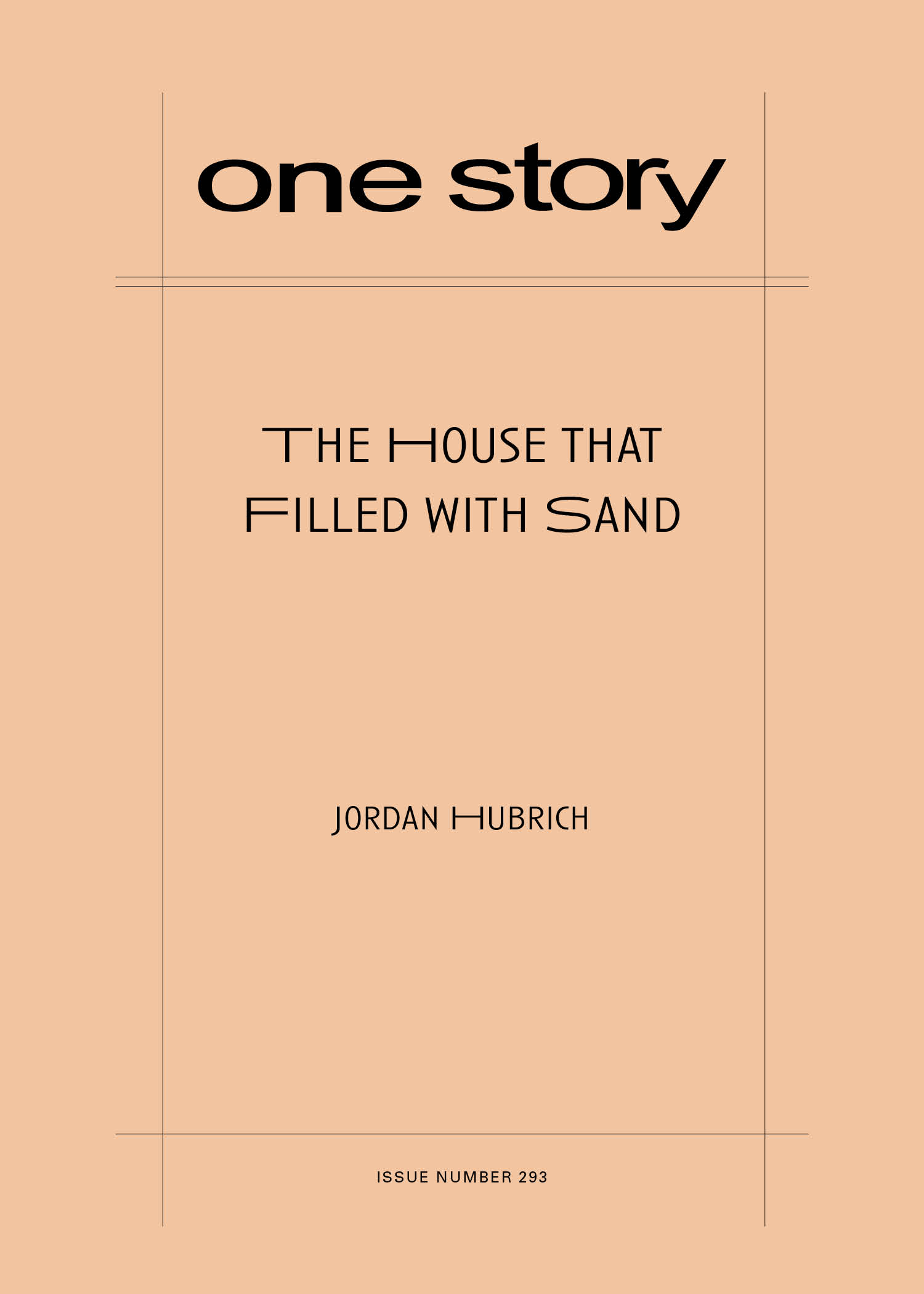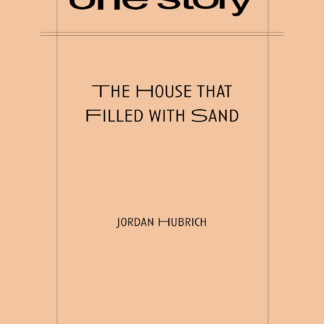
The House that Filled with Sand
$2.50
210 in stock
Excerpt
The sand began to creep in on a Tuesday in every room, all at once, as though someone had flipped a switch and all of a sudden there it spread. Mrs. Jenson was the first to notice. She was lying naked on the living room floor, her bare back pressed against the cool hardwood, when she felt a pricking against her skin. At first, she thought it just a minor irritation, but it became more and more insistent until she could no longer ignore the coarse pressure on her body. She sat up, grains sticking to her, and saw a dark tan sand seeping in through the creases of the hardwood. She pressed a finger against the grains. They were solid and rough and warm. Not humid warm like the Pennsylvania summer the Jensons were enduring, but as though they had been kissed by a hot, dry sun. She blinked—slow once, then fast, her eyelids fluttering. The sand did not disappear as it might in a vivid dream. It stayed and continued to spill through, so that it met to cover the slats of stained cherry wood with a thin layer.
“Hector,” she called. “Something’s not right.”
Jordan Hubrich
Jordan Hubrich received both her BA and MFA from The University of Kentucky. She currently lives in Cincinnati, Ohio, with her cat, Carol, and is at work on a novel. This is her first published story.
Manuel Gonzales on “The House that Filled with Sand”
I’ve lived in houses that filled with pantry moths and houses that filled with ladybugs, and I know that come winter, my garage and maybe even parts of my basement will begin to fill with mice, but I’ve never been in a house that fills with sand. And yet, as I read Jordan Hubrich’s debut story, “The House that Filled with Sand,” I found myself deeply, unnervingly caught inside an uncertain world that felt all-too-familiar.
At first glance, the story is contained within its quite evocative (and literal) title. One day, a house, indeed, begins to fill with sand. The heart of the story, however, is – forgive me – buried within its pages. An uncanny family drama at once funny and heartbreaking, Hubrich’s story manages to blend the surreal with the quotidian trauma of the quietly dysfunctional family unit, and it sits as a perfect read as the planet tilts from summer to fall, from sandy and sun-drenched days to the low, dark clouds, the storms that sit on the horizon. One Story is excited to invite you inside “The House that Filled with Sand.”
Q&A by Manuel Gonzales
- MG: Okay, Jordan, what the hell gave you the idea to fill this house with sand?
- JH: I’ve written a few different iterations of stories that involve the loss of a child/sibling, all of which were straight realistic fiction and all of which felt pretty lacking. I’m not sure exactly how sand got into my brain, though I remember thinking that to fill it with water would be too obvious. Also, I fell into one of those internet rabbit holes and ended up reading an interview with M. Night Shyamalan where he spoke about horror as a way to portray trauma and I sort of creatively spiraled from there.
- MG: One of the hallmarks of this story is that so much happens in it and yet so much—about this family, about their past trauma—is left unspoken. How do you determine what is okay to leave out of a short story? ?
- JH: It’s a balancing act. You want the story to have enough depth so that the reader feels grounded, but the absence of something can also be powerful—can even draw more attention to it because of its absence. With this story in particular, part of that unspoken element was drawn from personal experience. I come from a family where open communication—especially about painful or emotional things—is not our strong suit. But not talking about something doesn’t mean that it’s not there or that you’re not aware of it and so there’s tension, and self-expression happens in weird ways.
- MG: How many houses have you lived in that have spontaneously begun to fill with sand?
- JH: Luckily none. Yet.
- MG: This story is filled with an uncanny magic—would you say your work often traffics in the speculative or fantastical, the uncanny?
- JH: Very often.
- MG: What, in particular, draws you to this particular kind of storytelling?
- JH: I love the freedom and the weirdness in the uncanny and I think it allows me more effective means to get at an emotion or write about an experience. Also, it’s just fun.
- MG: When you get stuck as a writer, what are some of the ways you get yourself unstuck?
- JH: Music, nature, and reading (the trinity). I almost always listen to music when I’m getting out a first draft because it helps distract the parts of my brain that tell me to quit, but I also find music to be inspiring in the brainstorming process. A good album or playlist coupled with a long walk surrounded by trees and birds and all that life is creatively stimulating. Reading is also good for getting unstuck because it reminds me of the lovely things that can be done with words. Mostly, I have various tactics that get me out of my own head.
- MG: What are you working on now?
- JH: I’m working on revisions for a short story collection that is finally feeling close to finished, but I’ve also started working on a novel. It’s full of noir atmosphere, first love, and debt. My brain space was very much in the short story form for a while, so I’m excited to be diving into a larger project.
- MG: What is the best bit of writing advice you have ever received?
- JH: To paraphrase, “write it before you can talk yourself out of it.” When I was in grad school, I ran an idea past one of my writing professors, but I wasn’t sure if it would work or if I was “allowed” to write that way and he told me to just go for it. It’s important to allow yourself that freedom. Even if it doesn’t work in the end there will be at least one thing within the attempt that is strong and that you can use moving forward, or you just end up with a better sense of what works and what doesn’t work.
